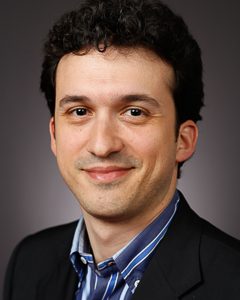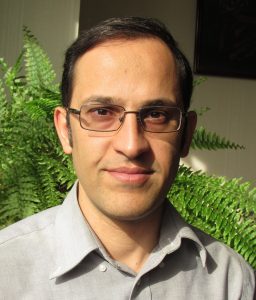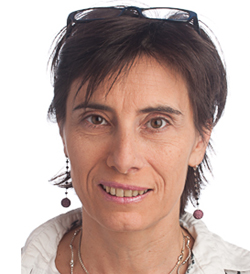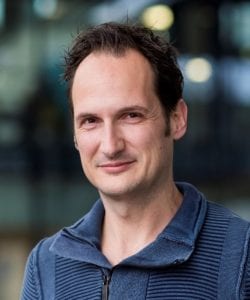School Chair:
Prof. Danilo Pani, Ph.D.
DIEE – Department of Electrical and Electronic Engineering
MeDSP – Medical Devices and Signal Processing Group
University of Cagliari, Italy
Danilo Pani is Associate Professor of Electronic and Computer Bioengineering since November 2019. His research activity is focused on medical devices and biomedical signal processing. In particular: – Cardiac electrophysiology and non-invasive fetal ECG – Tele-medicine, telehealth and telecare systems – Wearable electronics and textile electrodes for electrophysiological signals monitoring – Real-time embedded processing of neural signal. He is a professor for the B.Sc. in Biomedical Engineering and for the one in Neurophysiopathology Techniques at the University of Cagliari.
He is a senior member of the IEEE, EMBS. He is co-founder and treasurer of the Italian Chapter of the IEEE Sensors Council. He is a member of the Board of Directors of the National Bioengineering Group (GNB). He is a member of the UNINFO Commission for Medical Informatics and participates as an Italian expert in various working groups for the revision of international standards and in the Technical Committee 251 of CEN, Working Group 2. He is a member of the Independent Ethics Committee of the A.O.U. of Cagliari as an expert. He is PI of the DoMoMEA cluster project “Home neuroMotor tele-rehabilitation in favor of patients with moderate disability from cerebral stroke through advanced electronic devices”; unit coordinator of the Flag-Era CONVERGENCE project “Frictionless Energy Efficient Convergent Wearables for Healthcare and Lifestyle Applications” and unit coordinator of the PRIN project ICT4MOMS – “An integrated ICT approach to monitor and manage the development of pregnancy”. He participates in several national and European projects as a member of the research group. He is the author of more than 100 scientific publications in international journals, books and conferences, and co-inventor of 5 patents.
He was the organizer and Chair of the first edition of the Summer School on Technologies and Signal Processing in Perinatal Medicine (2018).
Scientific Committee:
Prof. Reza Sameni, Ph.D.
Department of Biomedical Informatics
Emory University School of Medicine
Atlanta, GA, USA
Dr Reza Sameni received a Bachelor’s degree in Electronics Engineering from Shiraz University, Iran (2000), a Master’s degree in Biomedical Engineering from Sharif University of Technology, Iran (2003), and a double Ph.D. degree in Signal Processing and Biomedical Engineering from Institut National Polytechnique de Grenoble (INPG), France, and Sharif University of Technology (2008). He was a tenured Associate Professor of the School of Electrical and Computer Engineering, Shiraz University (2008-2018), an invited senior researcher at GIPSA-lab, Grenoble, France (2018-2020), and currently an Associate Professor of Biomedical Engineering at Emory University (since 2020). Dr Sameni is also a Senior Member of the Institute of Electrical and Electronics Engineers (IEEE) since 2015. His research interests include statistical signal processing with special interest in modeling, filtering and analysis of fetal cardiac signals from noninvasive maternal abdominal recordings. He has coauthored more than 65 articles published in peer-reviewed journals and conferences and holds several national and international academic awards in teaching and research. Dr Sameni has also worked in industry and startup companies on the design and implementation of digital electronics systems and digital signal processing algorithms, especially for fetal cardiac monitoring and other biomedical applications, over the past 20 years.
 Prof. Maria Gabriella Signorini, Ph.D.
Prof. Maria Gabriella Signorini, Ph.D.
Department of Electronics, Information and Bioengineering
Politecnico di Milano, Italy
Maria G. Signorini is Full Professor at Department of Electronic, Information and Bioengineering, Politecnico di Milano since 2003. At the same University, she obtained the Ph.D. in Biomedical Engineering in 1995. After a Post Doc fellowship (1996-98) she became Research Assistant (1999).She served as Coordinator of the Biomedical Engineering PhD track at the Doctorate School of the Politecnico di Milano (2004-2014). 2014-2016 she has been charged by the Italian Government as member of the national Committee of Experts for the Policy of the Research (CEPR) at the Ministry of the University and Research (MIUR). Her main research field is focused to improve healthcare paths and medical devices by introducing both new methodological approaches and technological solutions based on biomedical signal processing. Her activity is devoted to fetal heart rate monitoring through analysis and classification by data analytics and machine learning techniques. She developed multiparameter approaches integrating linear and nonlinear parameters towards the prediction of risk in antepartum fetal monitoring, premature babies, dialysis patients and others cardiovascular diseases. Research results have been translated into technological solutions with modification of existing biomedical devices (Cardiotocography, Dialysis) or design of new instrumentation (wearable fetal HR monitoring).
Maria G. Signorini is PI of the Prin Miur Project ICT4MOMs and co-investigator in research projects. She is reviewer for several Scientific Journals (IEEE-EMBS Trans., Physiol. Measur, Chaos, Biom Eng &Comp, …). She is serving as Associate Editor of Computer methods and Programs in Biomedicine and in Frontiers in Physiology.
Since 2007 she is Associate Editor for the IEEE-EMBS Conference, Theme: Biomedical Signal Processing
 Dr. Rik Vullings, Ph.D.
Dr. Rik Vullings, Ph.D.
Department of Electrical Engineering
Signal Processing Systems Group, Biomedical Diagnostics Lab
Eindhoven University of Technology, the Netherlands
Nemo Healthcare BV, Veldhoven, the Netherlands
Rik Vullings obtained the M.Sc. degree cum laude in Applied Physics at the Eindhoven University of Technology (The Netherlands) in 2005. He received the Ph.D. degree from the Eindhoven University of Technology, Department of Electrical Engineering, with a thesis on the analysis and interpretation of the non-invasive fetal electrocardiogram. This research, in collaboration with the Máxima Medical Centre Veldhoven formed the basis for a spin-off venture, Nemo Healthcare, aiming at the realization of a system for pregnancy monitoring. Dr. Vullings is co-founder of this spin-off and he still works there part-time as Scientific Director. He is currently assistant professor at the Eindhoven University of technology, Signal Processing Systems group and board member of the Biomedical Diagnostic Lab. His idea on the possibility of standardizing the non-invasive fetal electrocardiogram towards diagnostic use was awarded in 2012 with a personal grant (STW/Veni) and the use of unobtrusive, capacitive sensors with a STW-HTSM grant in 2014.
In 2019, he was awarded the Henk Stassen award for Early Career Achievements in the field of Biomedical Engineering from the Dutch conference on biomedical engineering. He has co-authored over 100 publications (approx. 60 journal publications, >60 conference proceedings) and holds 8 patents and patent applications. His research interests include electrophysiological signal processing and modelling and data-driven modelling, with special focus on cardiology and perinatology related applications.




